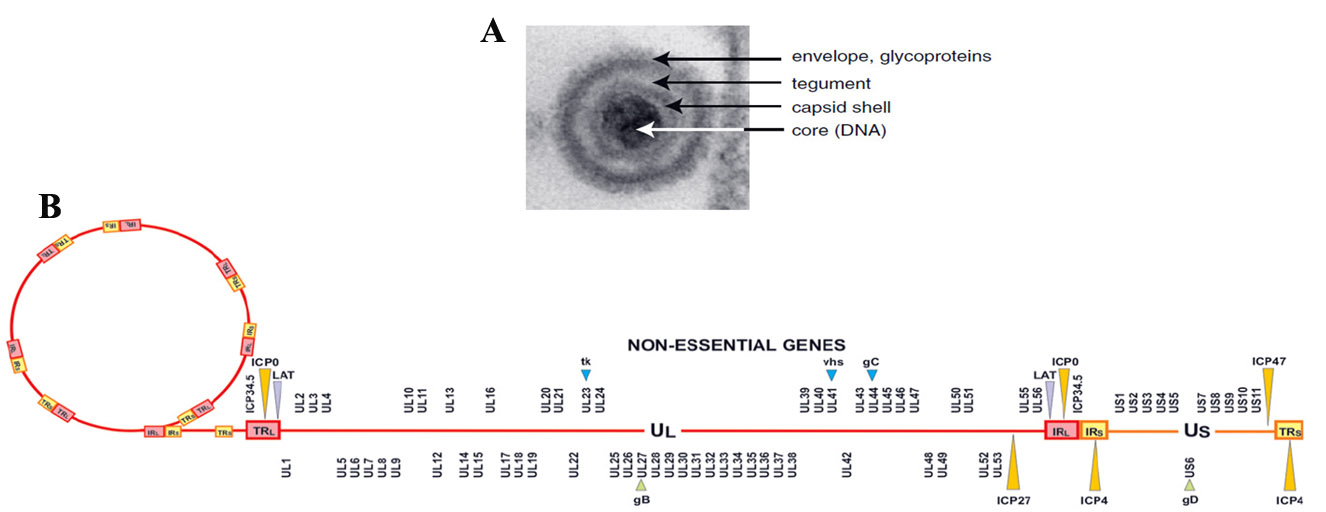Herpes simplex virus (HSV) is an enveloped, large linear and double-stranded DNA (~150 kb) virus in the family Herpesviridae, which include Herpes Simplex Virus Type I (HSV-1) and Herpes Simplex Virus Type II (HSV-2). In the large genome of HSV, about half of the sequences are non-essential genes, which means they can be replaced with one or multiple transgenes.

Figure 1. Herpes simplex virus type 1 genome.
BrainVTA have established the HSV system based on HSV-1 H129 strain which is originally clinical isolate virus. BrainVTA’s HSV system are able to produce high titer viruses allowing high level transgene expression with HSV neuronal tracing viruses, HSV oncolytic viruses and HSV amplicons through optimization.
Key informations
● HSV neuronal tracing viruses
● HSV amplicons
● HSV oncolytic viruses
● Wide host range
● Large DNA capacity
Applications
● Gene transfer and function research.
● Act as a powerful tool in neural tracing studies.
● Oncolytic vectors could be used in oncotherapy.
Success story
